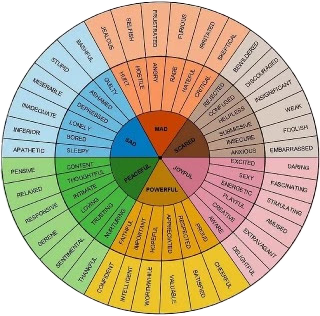
Are your children worried or confused hearing adults talk about the issues presenting us today?
No matter how we try to protect them from the news and events affecting us within our communities, they are exceptionally observant and very intuitive. Their worry and anxiety are fuelled by a sense of helplessness. One of the best ways to combat those feeling is by taking action. In particular, helping actions are very positive and leave one feeling empowered and useful.
At school when we hear of weather disasters or tragedies that hit the community at large or individual families, we take action with the students and spearhead social justice projects that we feel will support the people in need.
The last blog focused on empathy. Seeing things from another’s point of view and offering support, as millions have done through the protests world wild to stop racism. Many people report feeling profoundly moved by the outpouring of solidarity from people of all nationalities, ages and gender speaking out publicly for equality and human rights for all. We can hope that all our protesting is not only going to send strong messages to government and institutional leaders but transform our daily behaviour and courage to speak up in the face of racism and inequality.
Is the next step in this process making amends? In apologizing and engaging in being more loving to those that we have hurt, will hope to open up new lines of communication and build stronger relationships. In 12 step programs, steps 8, 9 specifically deal with taking responsibility of how we have contributed or caused hurt to others, facing them and apologizing then trying to work at improving the relationship. The many world religions practice repentance, however, it is the 12 step non-denominational organization that challenges its participants to face those they have wronged and make peace.
In addition to involving children in social justice activities maybe we should make bigger attempts in teaching them how to make amends (and this is more than the forced say you are sorry)? If more people in the world were willing to set aside their egos and surrender to the vulnerability of apology would the victims not feel honoured and heard? Would anger not dissipate? Would relationships not heal and improve? In making bigger efforts in teaching our children how to sincerely say sorry, would we not become more conscious of making amends as adults?
Dazzle’s Challenge: As a family consider writing an apology for any words or deeds that have been hurtful to people of colour and those of different nationalities to ourselves. A family prayer could then be written reminding all members to speak to everyone with compassion, have the courage to stand up for basic human rights and ensure we treat everyone equally.
As a family a social justice project could be taken on several times a year.
Quick Take Away Links: Social Justice Activities https://www.educationworld.com/a_lesson/social-justice-activities-students.shtml
Excellent resource from B.C.’s Ministry of Education for teaching diversity and social justice
https://www.bced.gov.bc.ca/irp/pdfs/making_space/makingSpace_full.pdf
Parenting https://www.nytimes.com/2020/03/17/parenting/coronavirus-kids-talk.html
https://www.cbc.ca/news/canada/covid-19-coronavirus-kids-young-teens-stress-anxiety-1.5523456
Fighting Anxiety
https://thefarmrehab.com/3easywaystoeaseacuteanxiety/
https://www.psychologytoday.com/ca/blog/emotional-fitness/201205/top-10-tips-reduce-anxiety
Making Amends
https://experiencelife.com/article/making-amends/ for kids https://afineparent.com/positive-parenting-faq/how-to-apologize.html






